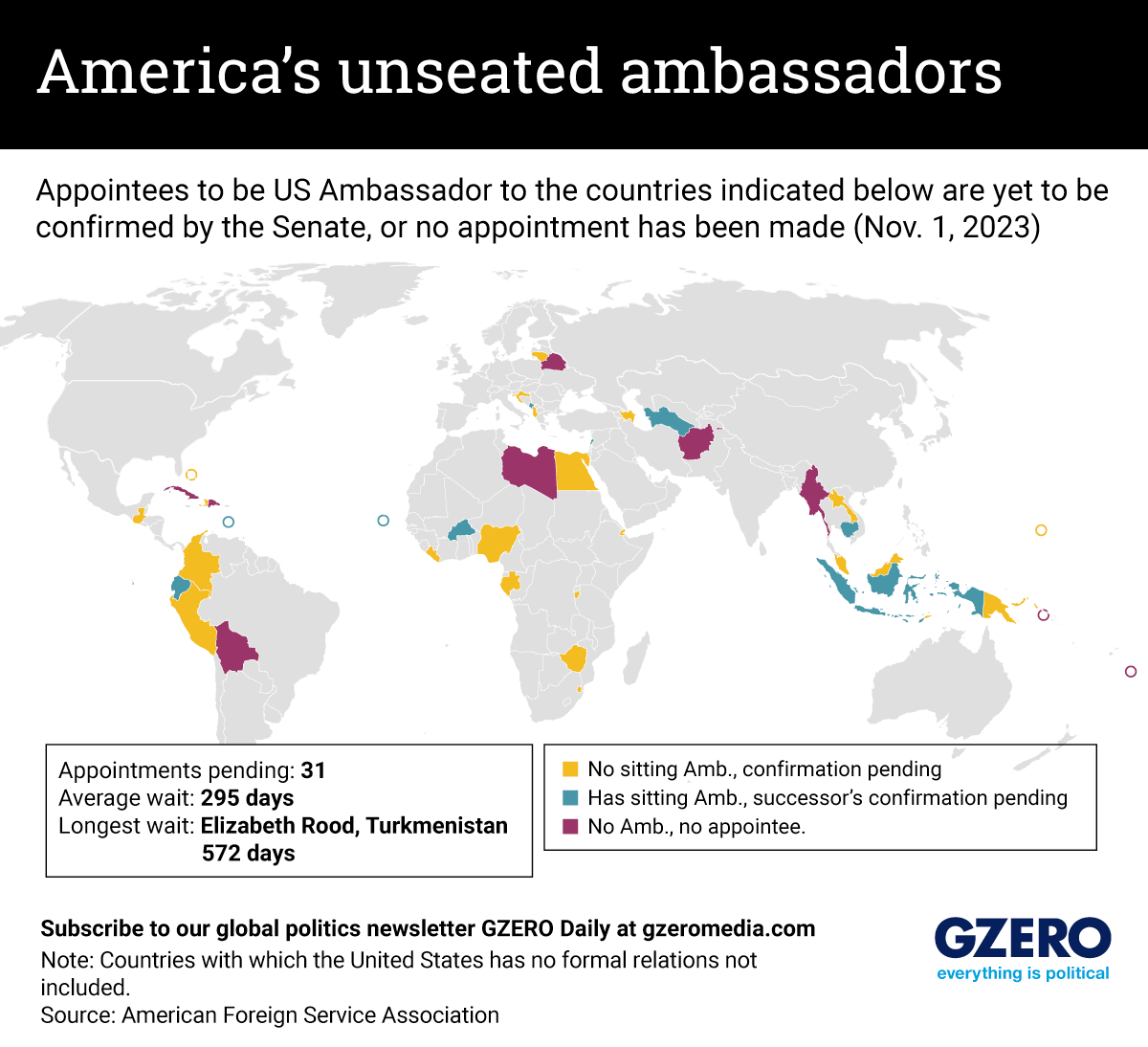On Tuesday, the Senate confirmed former Obama administration Treasury Secretary Jack Lew as ambassador to Israel, ending a glaring and embarrassing vacancy amid Israel’s conflict with Hamas.
Lew waited 56 days for his nomination to clear the Senate, which might seem like an eternity but is lightning fast by today’s standards. Some of Lew’s fellow nominees have been waiting 10 times as long to take up their appointments overseas. Not everyone waits that long, of course, but if you find yourself appointed to a Senate-confirmed position soon … don’t quit your day job: The folks already in line for ambassadorships have clocked an average of 295 days.
The culprit is arcane Senate procedure — and a member with an agenda. Most confirmations are passed out of committee by unanimous consent to bypass cumbersome protocol, but a single senator can “hold” a nomination indefinitely just by stating their intention to do so.
Sen. Rand Paul (R-KY) has been doing just that, refusing to confirm the Biden administration’s appointments until he receives documentation about the origin of the COVID-19 virus. The State Department says it has provided him with all the pandemic-related information they have.
Nonetheless, appointments to 31 countries remain to be confirmed. Egypt, Colombia, Nigeria, Haiti, and Azerbaijan, just to name a few countries that have topped headlines lately, are missing US ambassadors. And should the confirmation delays continue to grow, as the Bipartisan Policy Center shows they have for decades, even more crucial diplomatic appointments will remain vacant.
Have a look at the US missions without a confirmed ambassador, successor, or nominee.
